Sapore, passione, emozione…………………..
Passions run deep in Italy, emotion is always close to the surface. Conversations, discussions or a pleasant exchange with friends can sound dramatic, powerful even threatening.
I can imagine the scene in Italy a few weeks ago, when Giuseppe d’Aquino, a well-known chef, received an invitation to travel to London to cook two of his signature dishes in front of an audience of journalists, bloggers, marketing and PR folks and the odd travel writer. There will have been high drama, pandemonium even in the kitchen. This will have been swiftly followed by a serious discussion about ingredients, and the quality of ingredients available to the chef outside Italy. As all Italians know, their tomatoes are the finest, herbs the most aromatic and olive oil, simply the best known to man. Chefs all over Italy work tirelessly to produce the very best dishes using the highest quality ingredients. They will all tell you, without exception, that success lies in the flavour and freshness of those ingredients. It’s this pursuit of perfection that defines Italian cuisine today.
Giuseppe d’Aquino is a good example of a new breed of culinary professional. Passionate, obsessive, single-minded. I met Giuseppe for the first time about two years ago, he had recently been appointed Executive Chef at Villa Cordevigo, a wonderful country house hotel in the rolling hills of the Veneto, just a few miles east of Lake Garda. The combination of Giuseppe’s wonderful cooking and the fabulous atmosphere of this beautiful hotel quickly resulted in a Michelin star for his Ristorante L’Oseleta. On that occasion I was lucky enough to sample his ‘spaghetti with piennolo tomatoes and burrata’. I’m honoured, two years later, to be invited to sample his cooking, this time in London.
When I first arrived at the Underground Cooking School, located in the basement of a building on City Road, I wondered about Giuseppe’s reaction to this bustling, noisy city. A far cry from the rural harmony of the Venetian countryside. Of course I should have known, he’s a professional chef and the minute he stepped through the door he was in chef mode. Determined to produce the very best with the ingredients available!
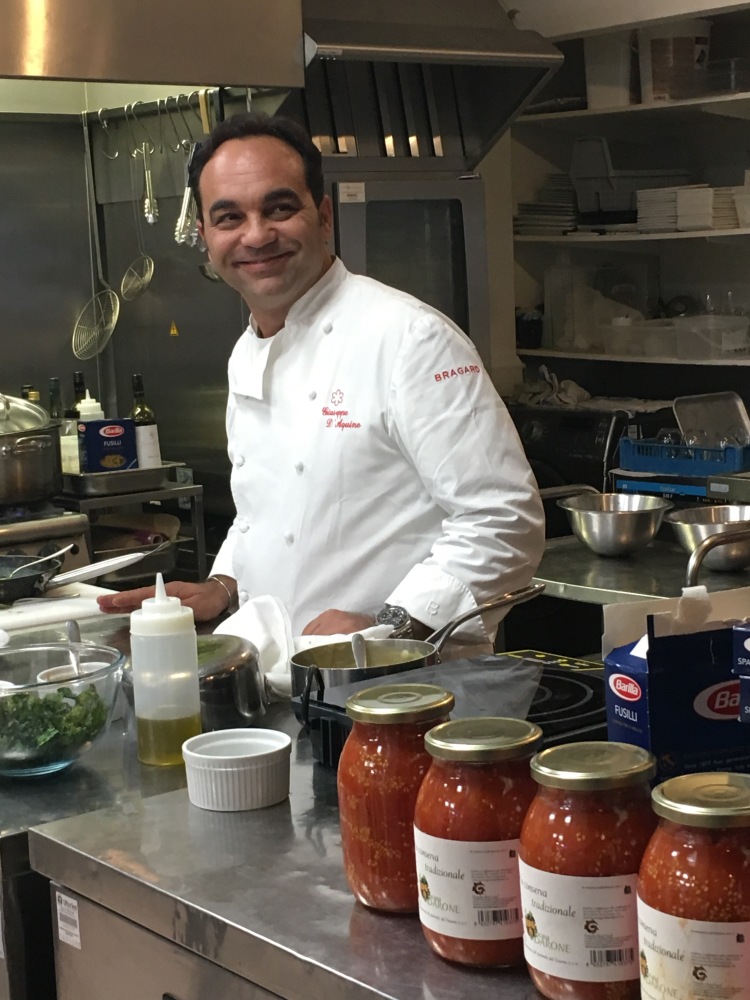
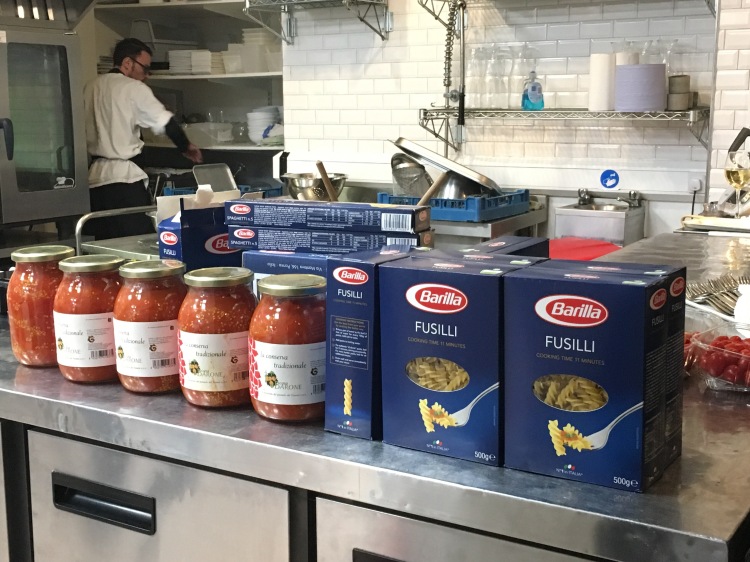
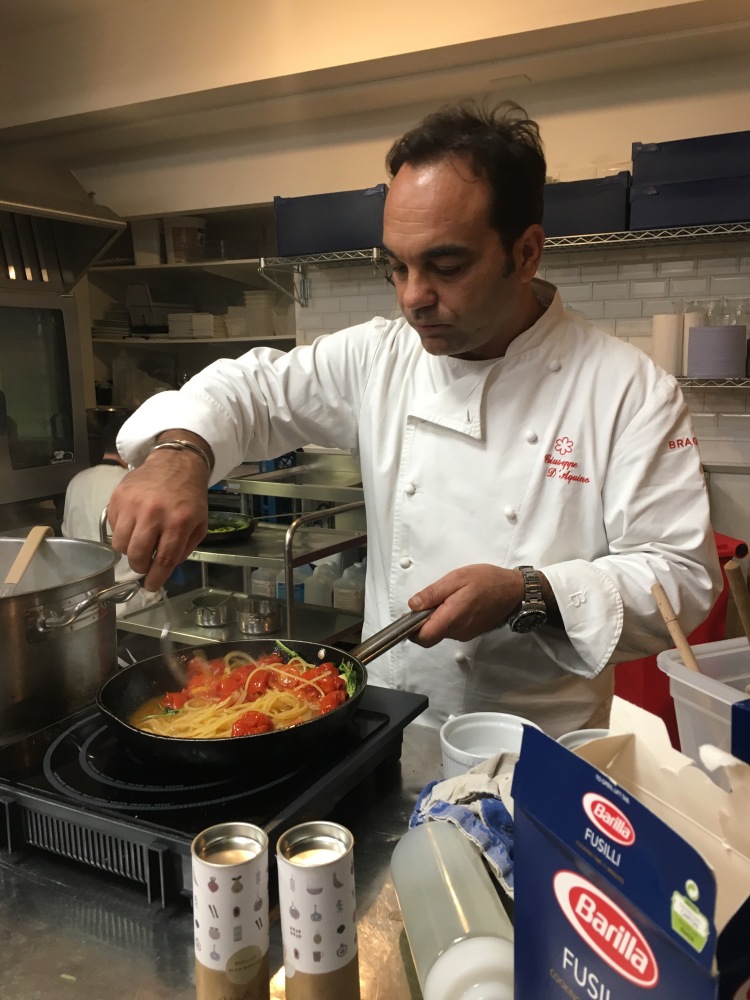
I smile when I notice, lined up on the counter, jars of preserved tomatoes, recently arrived from Italy. Our chef has also brought Italian olive oil and burrata (a soft cheese). He wasn’t taking any chances. Pasta has been provided by Barilla, the event sponsor. Kitchen team and support staff have been provided by the Underground Cookery School.
As soon as Giuseppe got to work there was silence in the kitchen. His concentration, dedication and single mindedness was absolute. First we watched him prepare fusilli with parsley extract, clam cream and sea urchins. The clam cream had come from Italy as had the sea urchins. Small tastes ‘assaggi’ were passed around the room. The fusilli held the parsley and cream of clams brilliantly. A selection of green herbs, lightly crisped provided a ‘croccante’ sensation in the mouth. The sea urchin provides a taste of the sea, with its salty and fresh flavour. As an appreciative audience murmurs its approval our chef begins to relax. He grins broadly.
Next comes his signature dish of ‘spaghetti with piennolo tomatoes and burrata enhanced with basil and lemon’. Francesca, my friend and also official translator, starts to translate for an animated and passionate chef. Giuseppe explains that when he first started to cook at Villa Cordevigo he thought long and hard about the dishes that visitors to Italy wanted to experience. He concluded that most people, on a trip to Italy, want to eat pasta and pizza. He ruled out the pizza and started to think about pasta. He decided that the most simple and delicious of tomato sauces would be a popular choice. So he set about creating the purest sauce using only the finest ingredients and delivering the very best ‘sapore’ or flavour and a combination of textures.
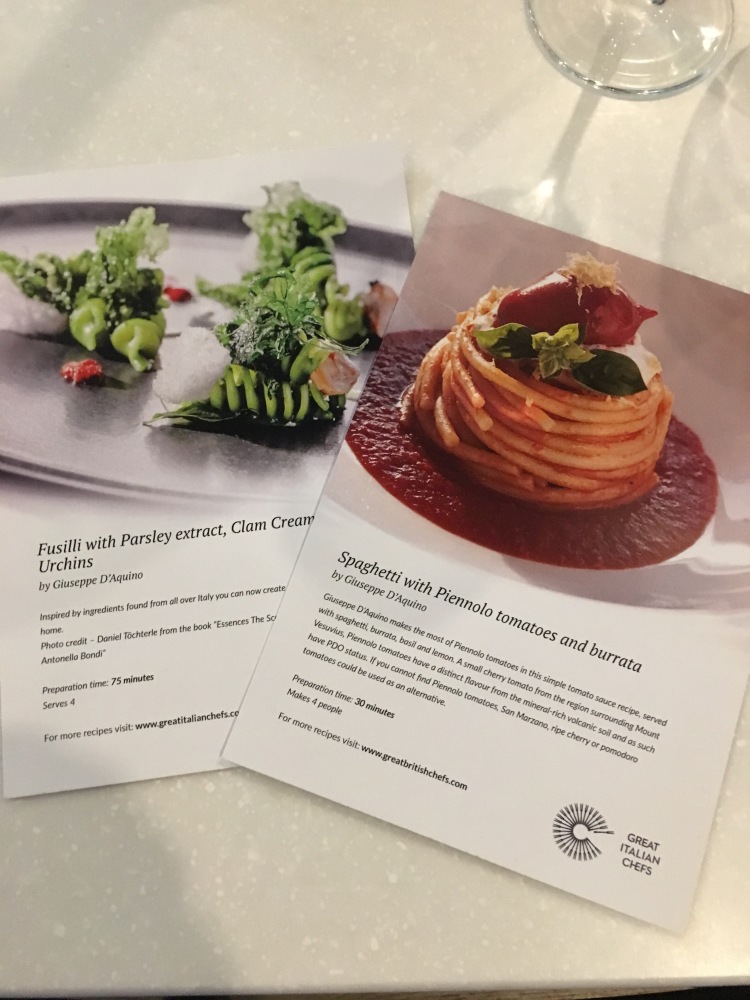
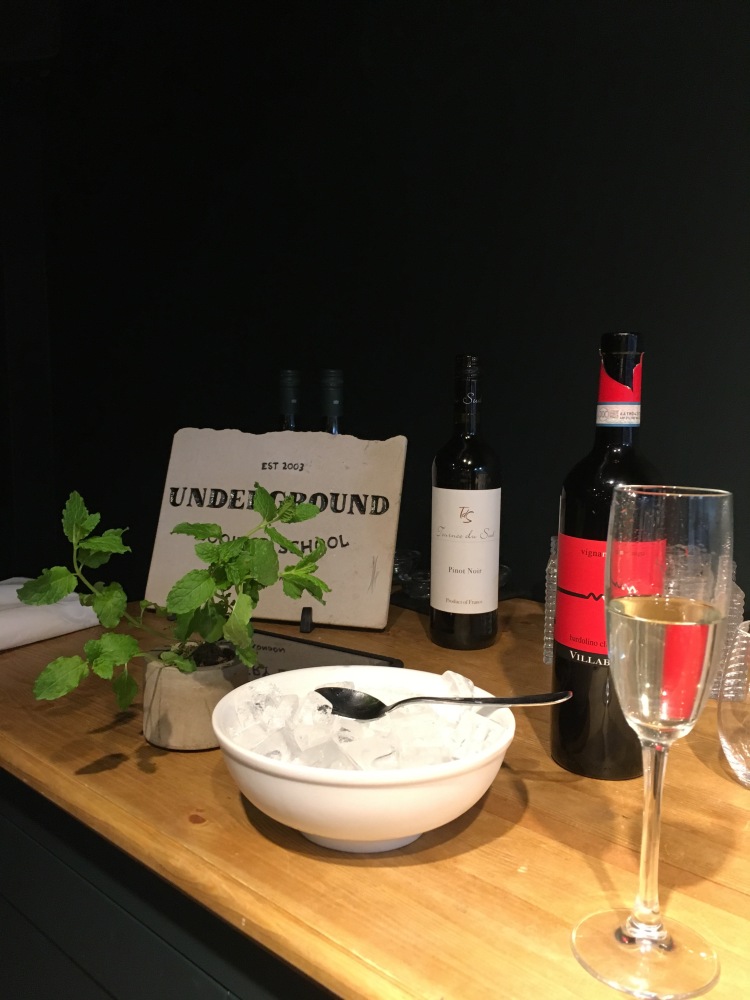
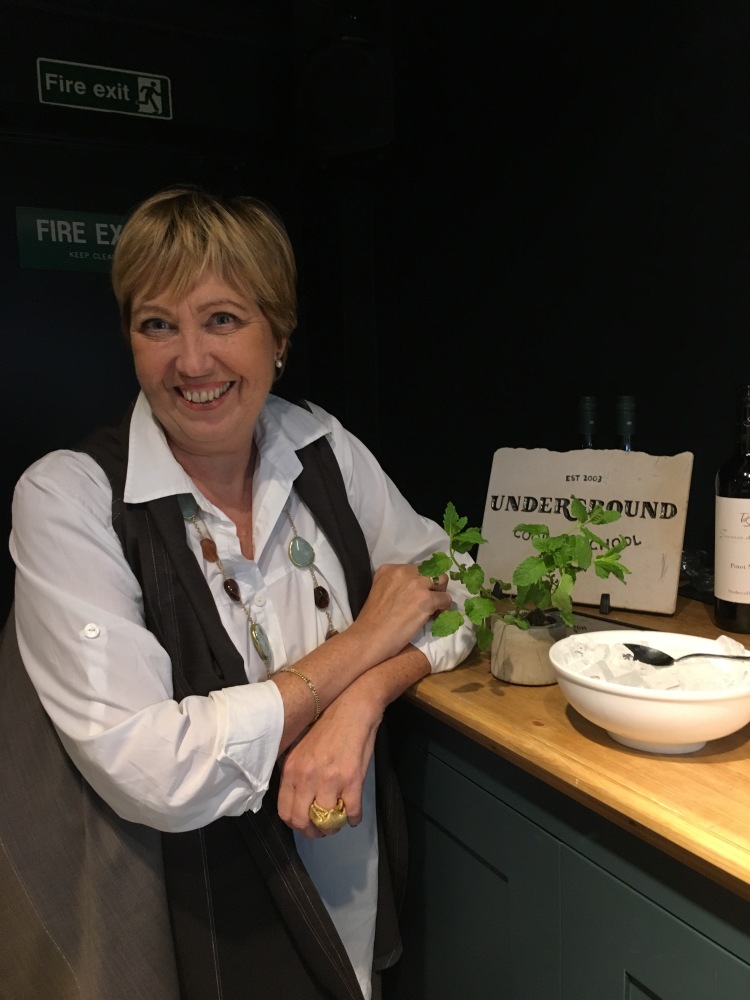
Giuseppe is from Napoli and for him the tomatoes that grow around the Bay of Naples are the richest in Italy. So he starts his recipe with lightly cooked piennolo tomatoes, which have a distinct flavour, as they grow on the mineral rich volcanic soils of Mount Vesuvius. These tomatoes have a DPO certification, which means they are unique and special. The tomato sauce is a brilliant red and smells delicious. Giuseppe cooks the pasta partially in boiling water before pouring it into the tomato sauce pan to finish the cooking process. He explains that the pasta will now absorb the tomato sauce and the infusion of flavours in the pan, including garlic, olive oil, basil and of course piennolo tomatoes. When the pasta is cooked but still ‘al dente’ he swirls it in a ladle creating a small circular bird’s nest shaped mound of spaghetti. This is then placed carefully on a hot plate ready for serving. Next comes the decoration. A sprinkling of basil leaves over the top. Then pieces of finest quality burrata placed on top of the mound of spaghetti. The dish is finished off with a gentle sprinkle of lemon zest. The lemons come from Sorrento, just south of Naples. Many Italians regard the lemons of Sorrento as the best in the country.
Giuseppe d’Aquino’s ‘spaghetti with piennolo tomatoes’ is finished. Once again the chef permits himself a smile. We sit down to eat this heavenly combination of pasta, tomatoes, basil and burrata. The chef continues to talk about this signature dish of his, its simplicity and the freshness of flavours. He is convinced that this simple and yet perfect dish earned him his Michelin star. As I sample a mouthful of this magical Italian dish and the explosion of tomato, garlic, basil and burrata that assaults my senses, with a gentle and fresh after taste of lemon, I’m strongly inclined to agree. As any Italian chef will tell you, its all about the quality of the ingredients. I would add to that the skill of the chef, whose passione, emozione and dedicazione is second to none.
Notes:
- Pomodorini Piennolo (tomatoes) of the Vesuvius area are also known as Pomodorini di Vesuviano. They have been awarded DOP status which means ‘Demoninazione Origine Protetto’ in other words they are grown in a carefully authorised and accredited area.
- Giuseppe d’Aquino is Executive Chef at Ristorante L’Osoleta at Villa Cordevigo country house hotel. You can read more about the hotel at Villa Cordevigo
- With thanks to Barilla #CookSchoolGIC and Francesca Blench.






Oh, Janet, what a wonderful experience! I can just taste the pasta dish–you’ve described it brilliantly! You’ve written a perfect description of a perfect culinary adventure!
LikeLiked by 1 person
Too kind Mary Lou – too kind!
LikeLike